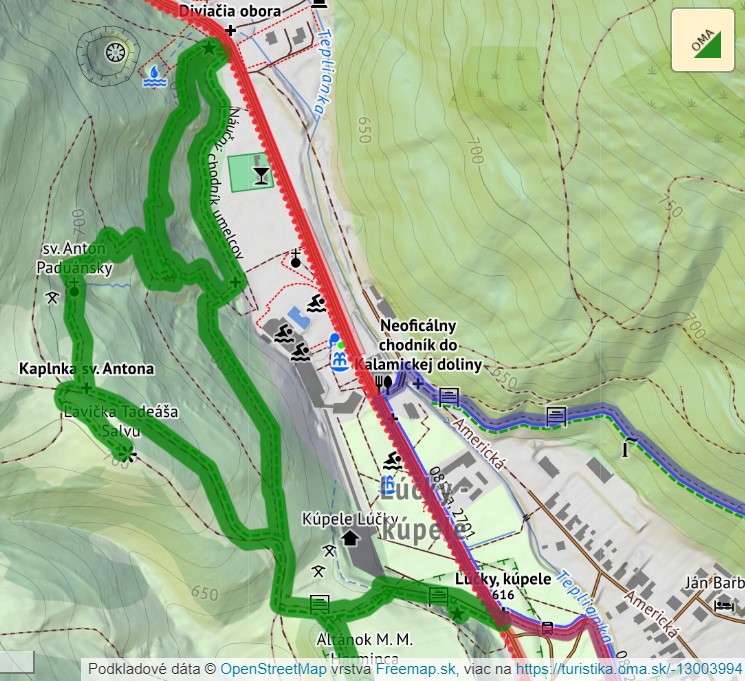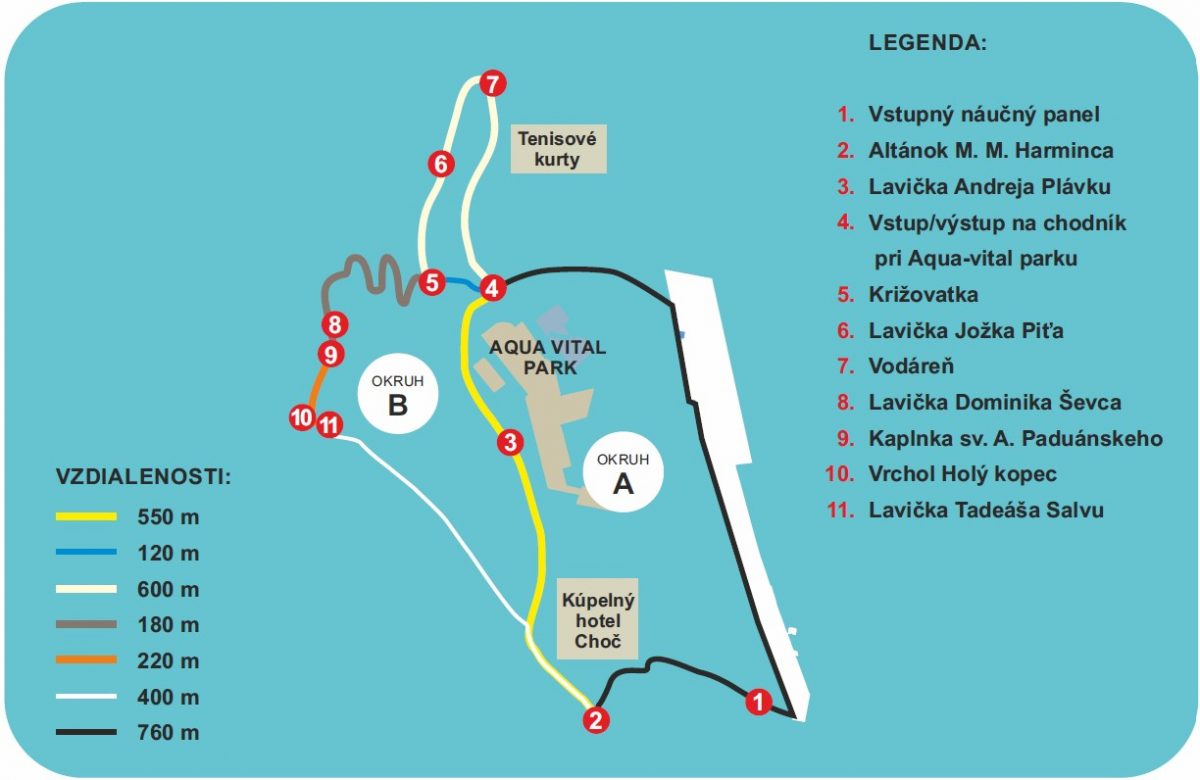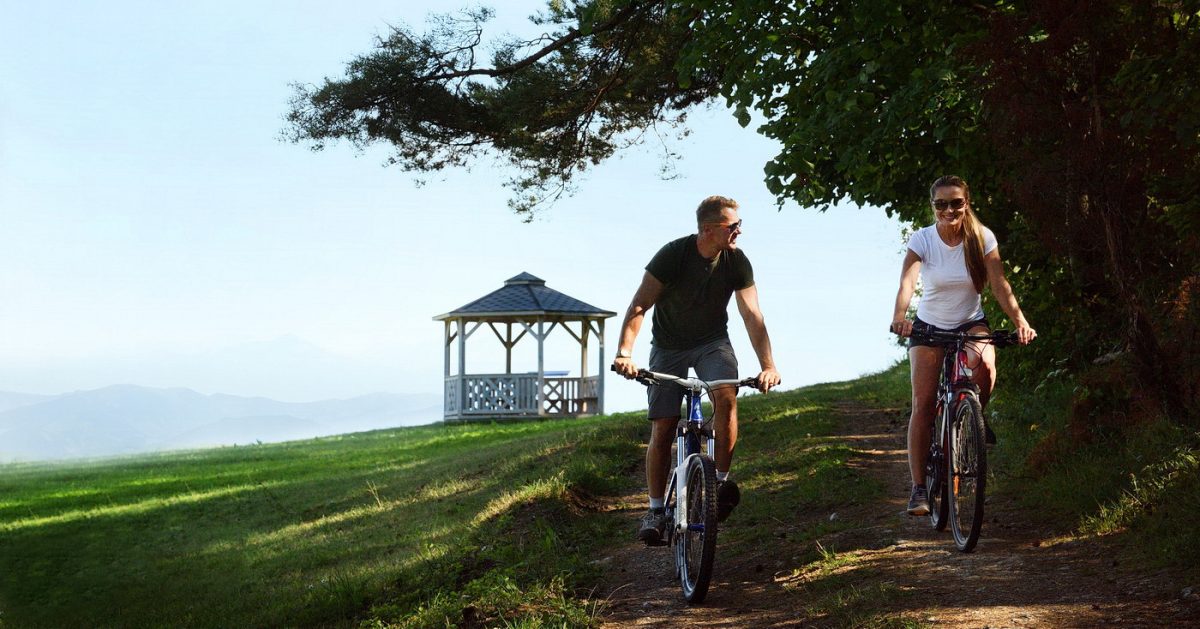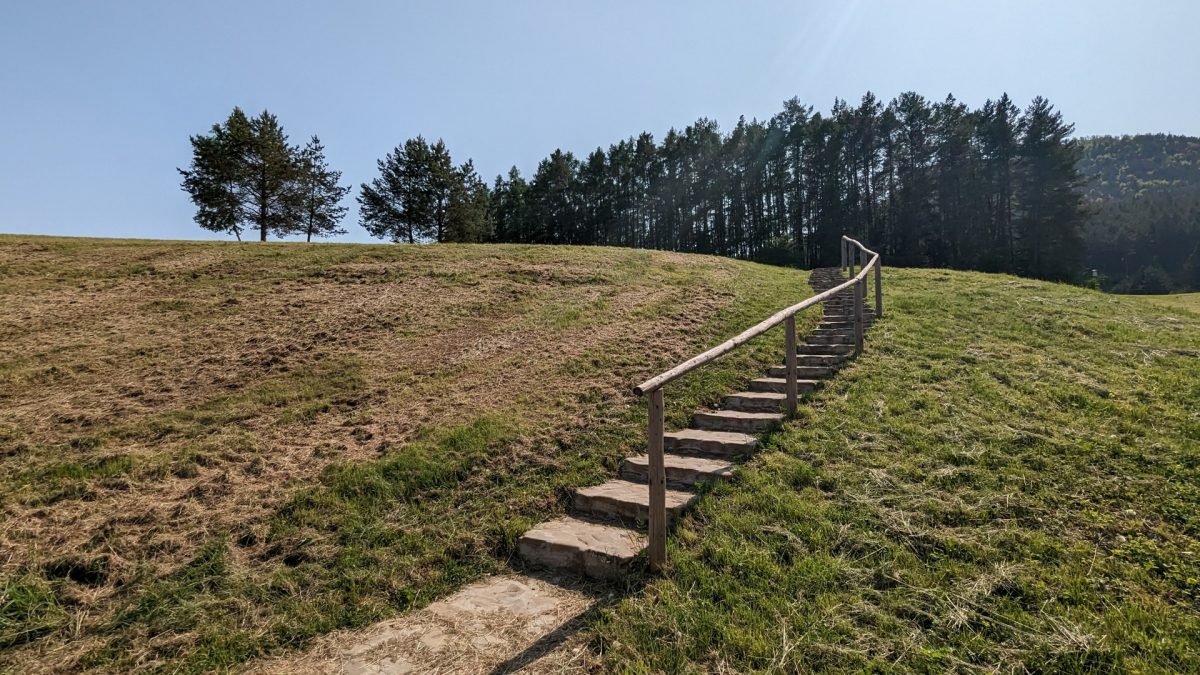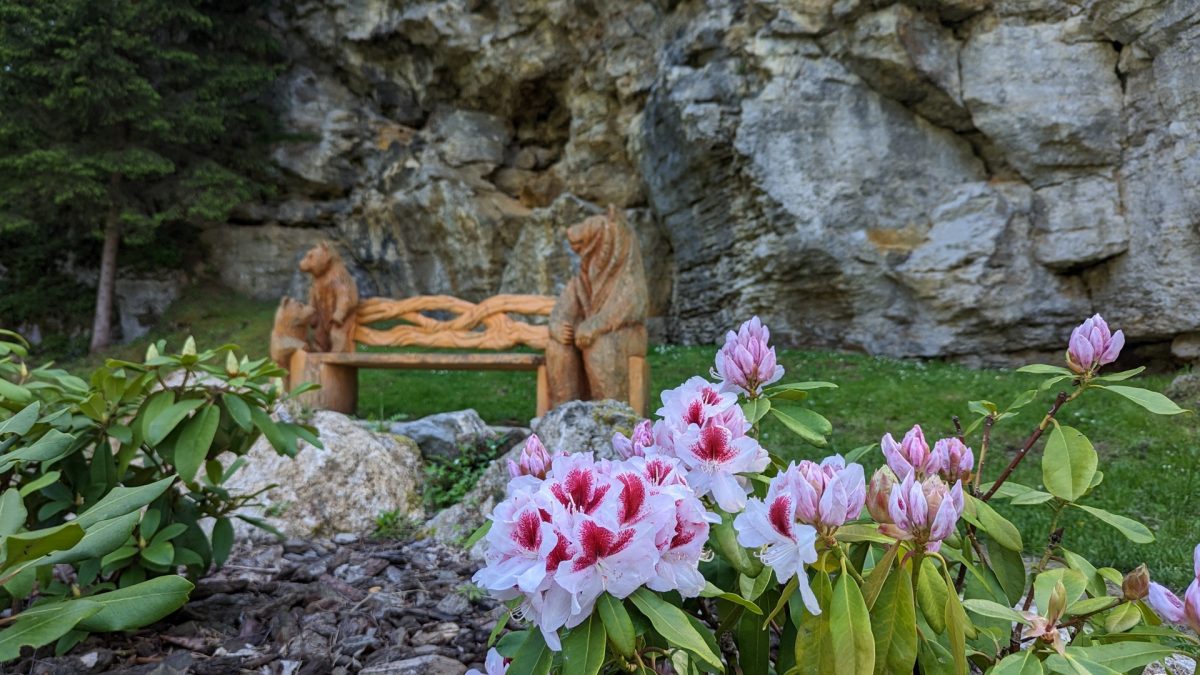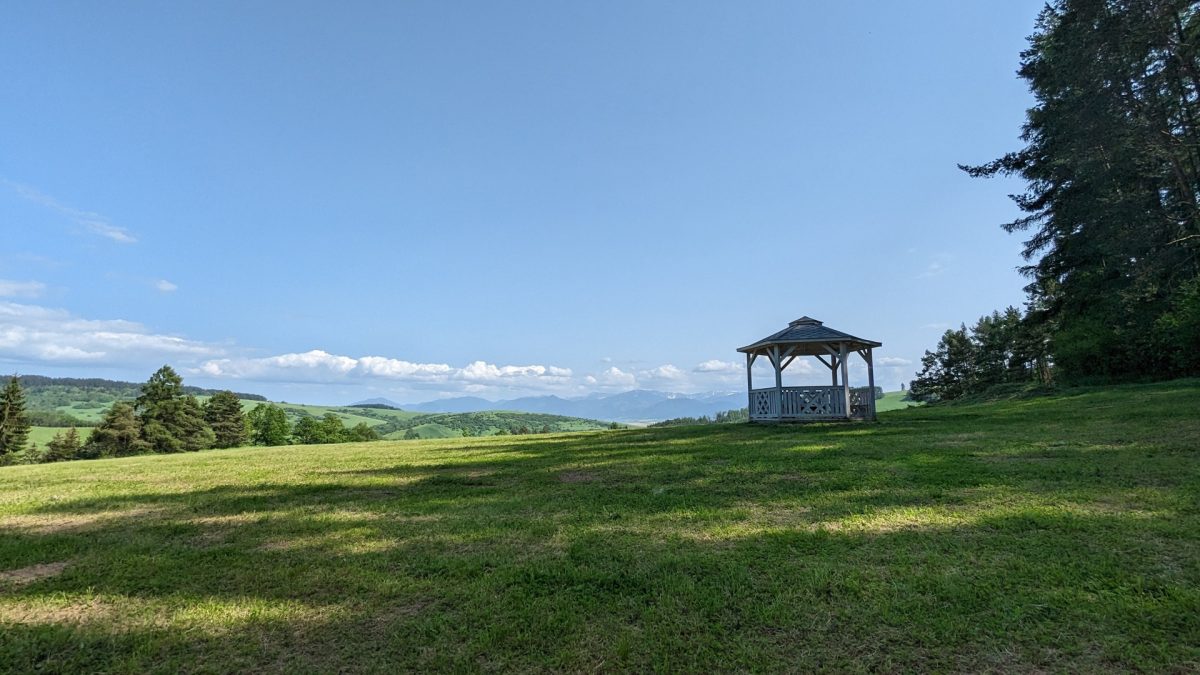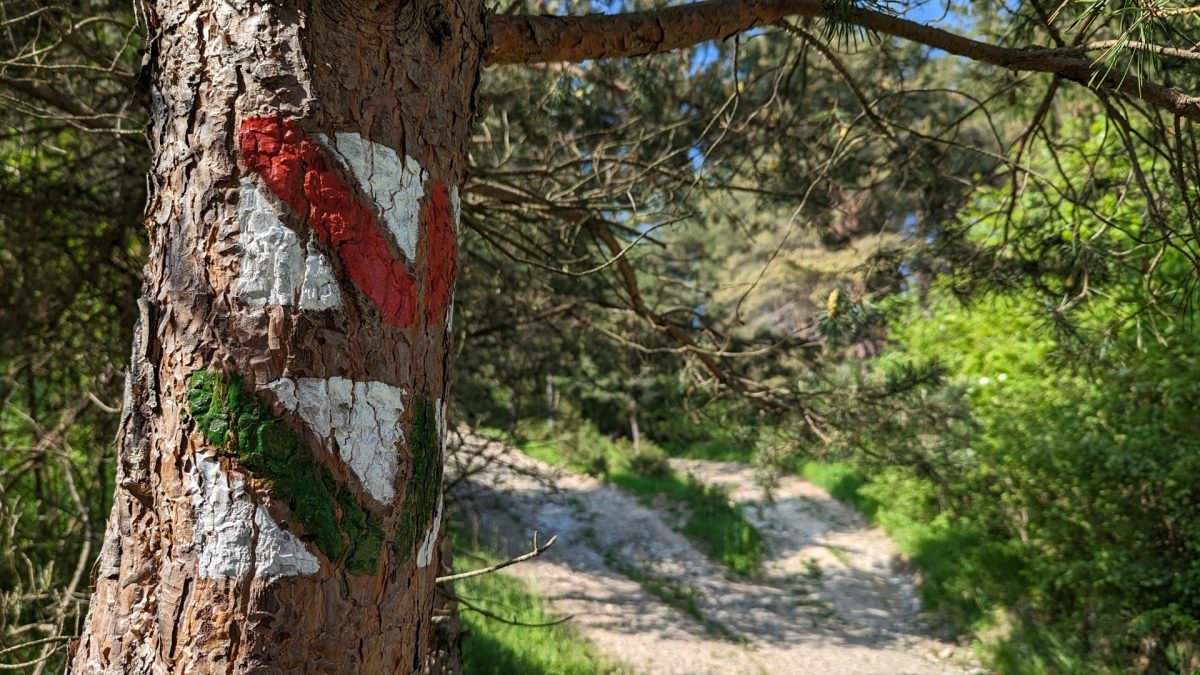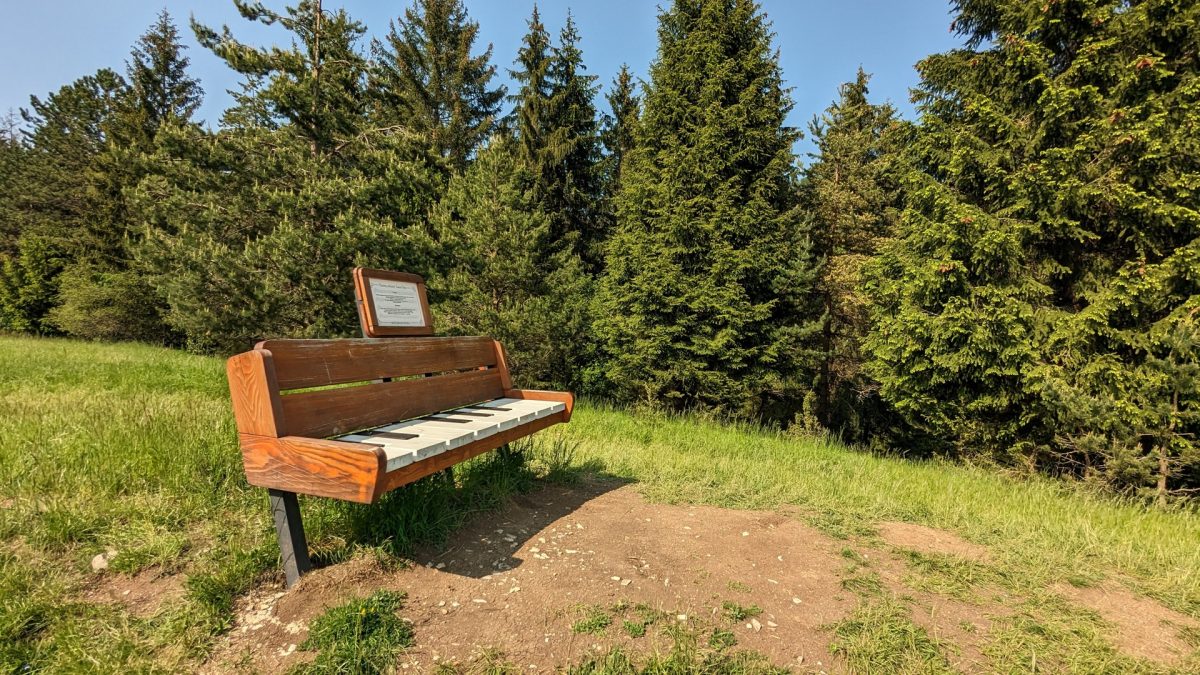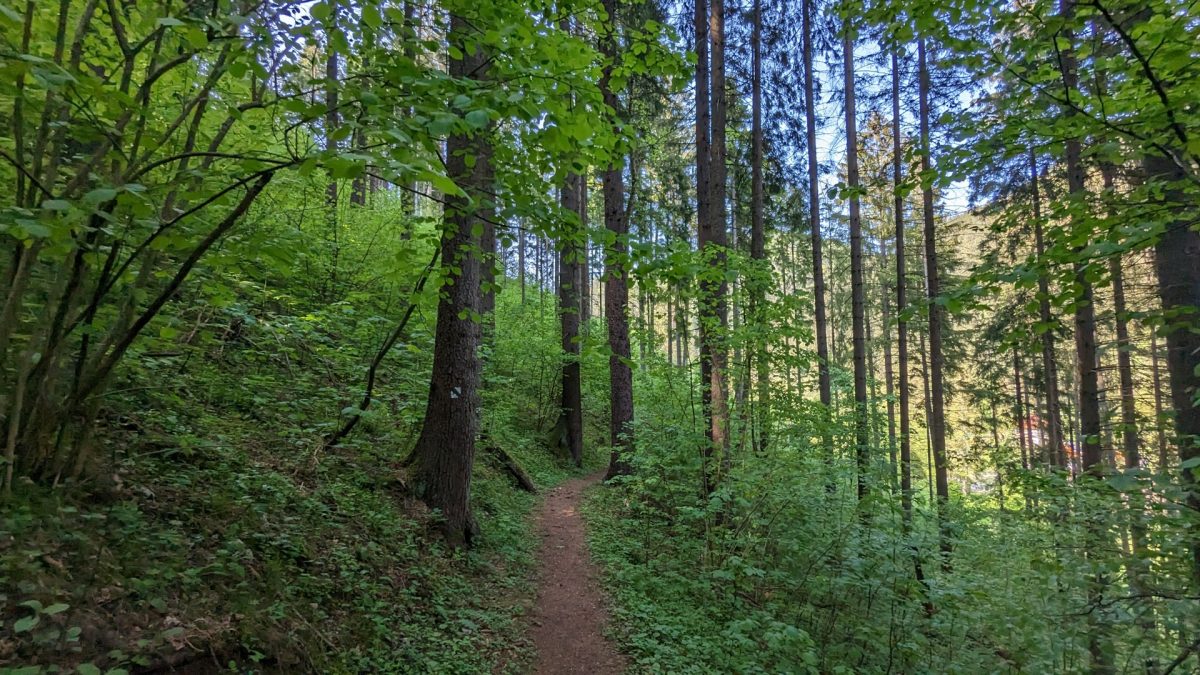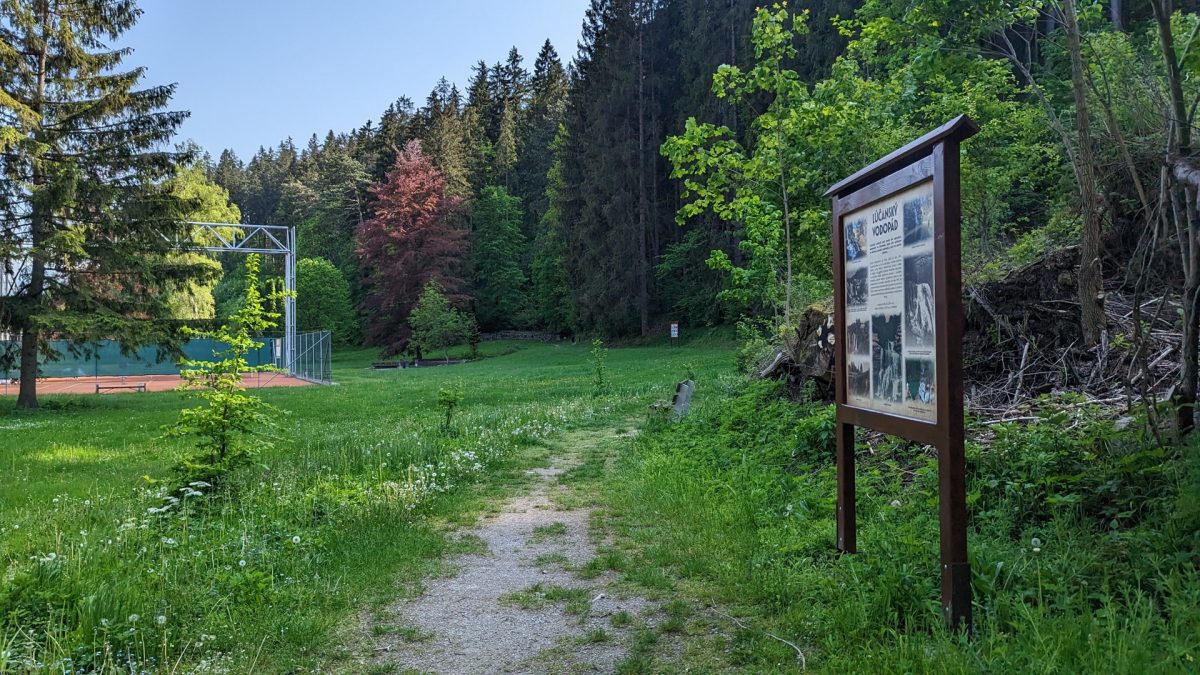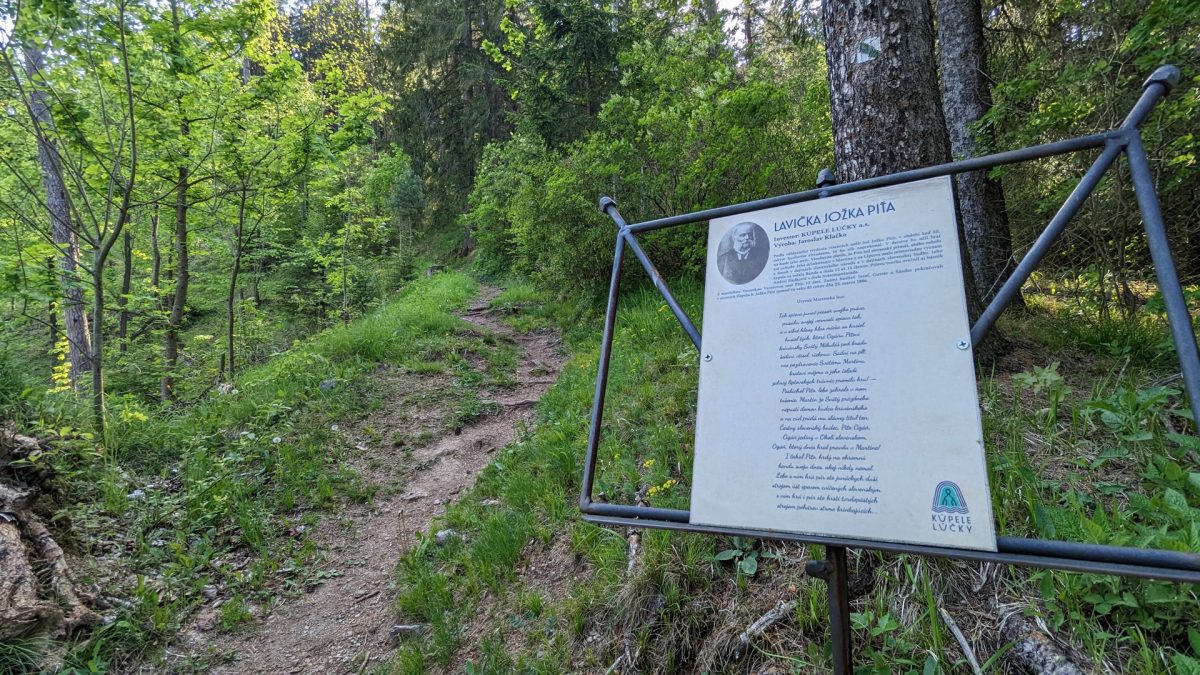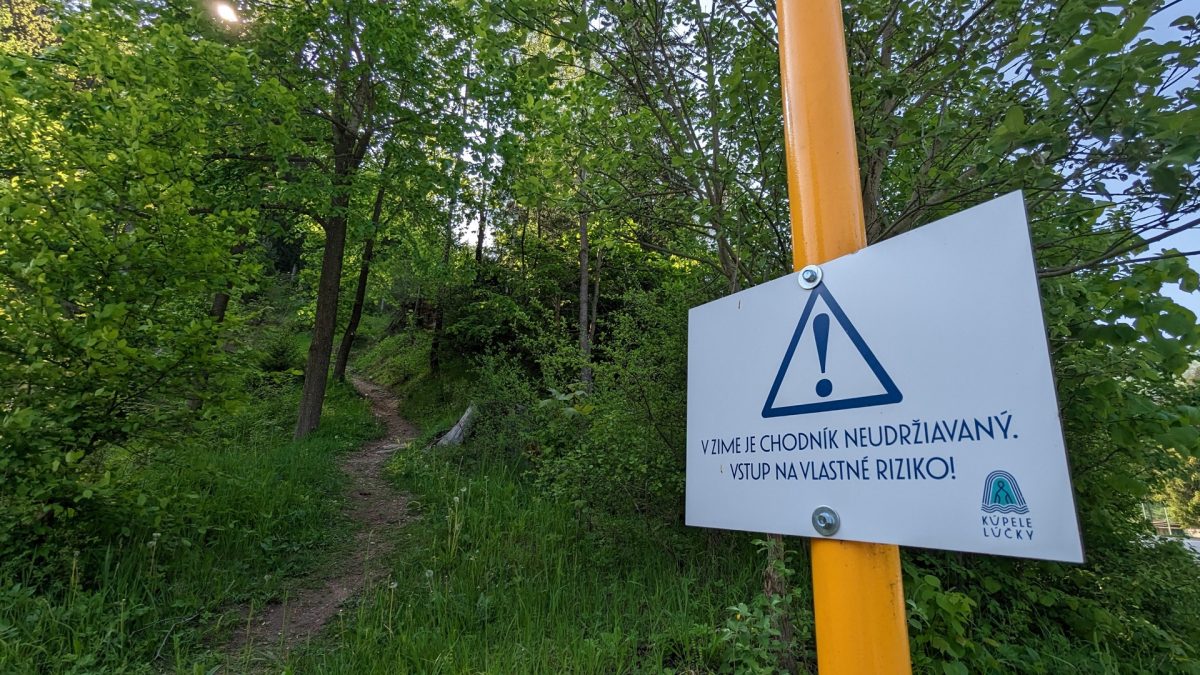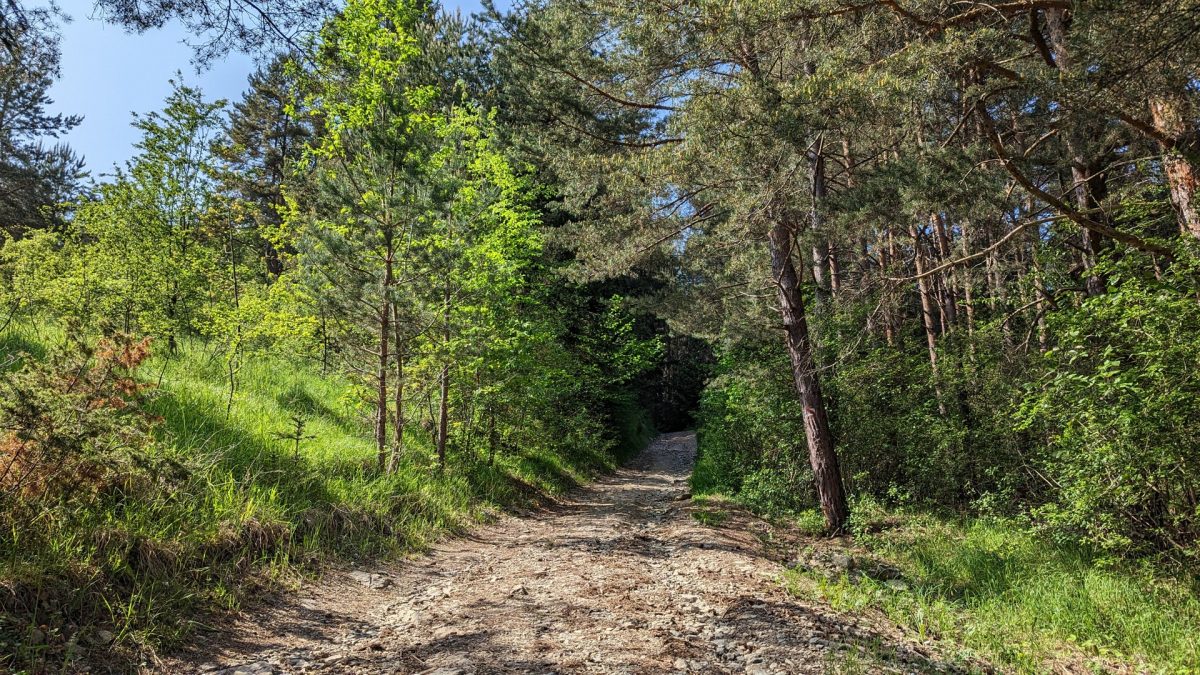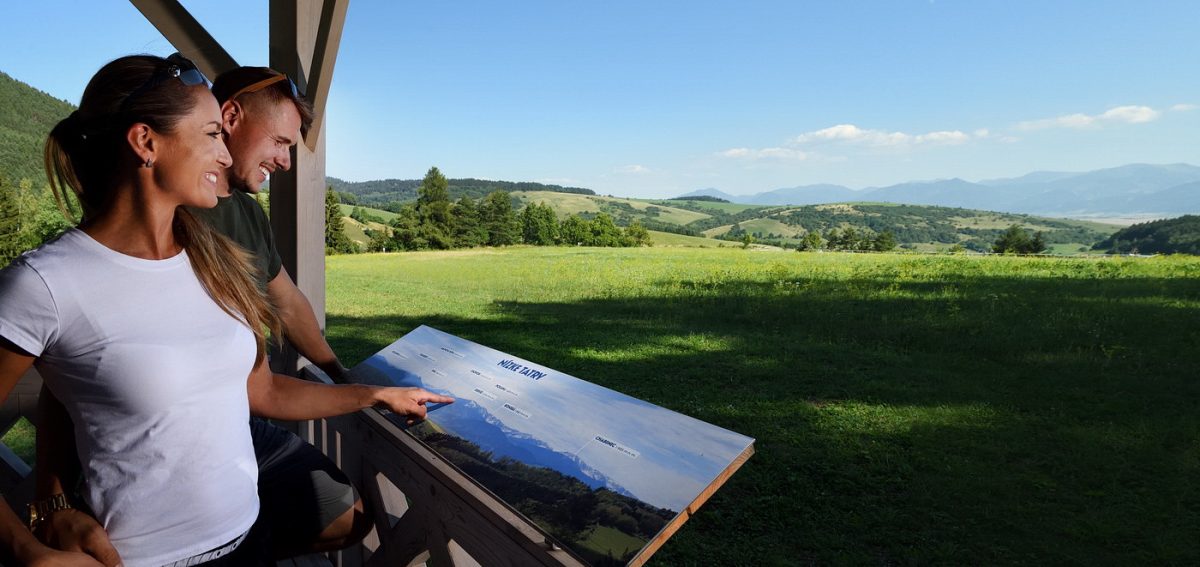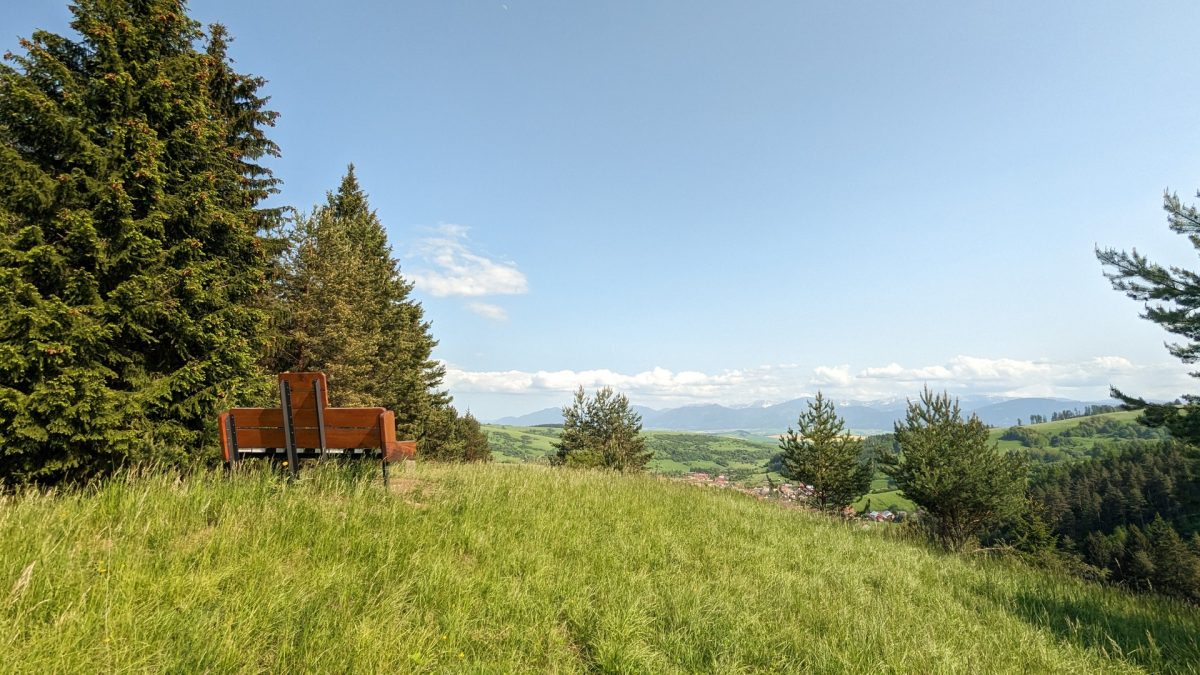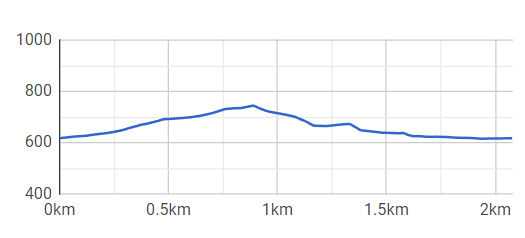Explore a short educational Trail of artists in the beautiful surroundings of the Lúčky Spa. It leads behind the Spa Hotel Choč, the Dependance Liptov spa house and the Balneocentrum. The trail is dedicated to the memory of famous artists whose lives were connected to Lúčky. The gazibo is dedicated to Milan Michal Harminc, a famous architect who designed the Dependance Liptov spa house. The artistic benches are dedicated to Tadeáš Salva, a famous composer who was born in Lúčky, and to Jožko Piťo, one of the most famous first violinists in Slovakia who used to play in Lúčky and who contributed to the promotion of Slovak folk music.
M. M. Harminc: was one of the most active Slovak architects. He was professionally active for 65 years ( 1886 – 1951 ) during which he designed over 300 buildings throughout Europe, of which 171 were situated in Slovakia. He was born on 7 October 1869 in Serbia. In 1886 he left for Budapest, where he worked for several construction companies. He founded his own construction office in 1897 and by the beginning of the war, he managed to design 45 houses. In 1915 he moved with his family to Slovakia, to the town of Liptovský Mikuláš, where he opened a design and construction office. What connects him to the Lúčky Spa is the building of the Liptov spa house he designed. The war postponed its opening to 1946 when it began operating with the capacity of 100 beds. He died in 1964 in Bratislava.
Dominik Ševc: He was born (March 12,1895), lived and was artistically active in Lúčky, the place he loved. He founded the Folklore Group Lúčan, originally called Choč (in 2020 it celebrated 80 years since its foundation). He sewed costumes for the group, choreographed the dances, composed folk wishes and songs, performed in an amateur theatre…He dedicated 60 years of his life to the promotion of cultural life of Lúčky, with the desire to preserve traditions and cultural heritage of our ancestors. Under his supervision, the ensemble rehearsed a hussar dance, a recruit dance, a stick dance and a so-called “šatôčkový” (handkerchief) dance as well as a traditional wedding performance, Priadky performance and an unforgettable Pltnica perfomance, the idea of which was taken over by SĽUK (Slovak Folk Art Ensemble). He was awarded the Folklore Festival Východná commemorative medal by the then Minister of Culture in 1973.
Jožko Piťo: He was born in 1800 in Tekovské Lúžany. After serving for 12 years in the Imperial Army, he got to Liptovský Mikuláš where he first encountered the Slovak folk song which had him captivated from then on until his death in 1886. He formed his own band which played for lords from all over Slovakia. That is how he got to the Lúčky Spa where he entertained guests during the spa season. His violin virtuosity was described by many Slovak poets and writers, yet the best description is believed to be given by S. H. Vajanský in his “Husľa” novel. Jožko Piťo helped raise Slovak national awareness by placing a folk song to the pedestal it rightfully deserves.
Andrej Plávka: A poet born to the family of a tanner in the village of Liptovská Sielnica in 1907. He worked as a director of the Tatran book publishing company from 1949 to 1968 and was a chairman of the Association of Slovak writers in the years from 1969 to 1982. He published his first poetic work in 1922 in the Nový rod magazine. He later published in the Mladé Slovensko, Svojeť, Mladé prúdy, Elán, Slovenské pohľady and other magazines. His work was inspired mainly by the older generations of Slovak authors, such as the Štúr group and mainly by P. O. Hviezdoslav. After L. Sielnica was flooded by the waters of the Liptovská Mara dam, the Lúčky spa became the place where he spent his holidays every year and where he sought inspiration for the many poems he wrote. He died in 1982 in Bratislava.
Tadeáš Salva: A music composer, associate professor and artist. This native of Lúčky (October 22, 1937) was musically gifted from a young age. He studied accordion, cello and piano at the Higher Music School in Žilina. He continued his compositional studies at the Academy of Performing Arts in Bratislava with A. Moyzes and J. Cikker and finished his studies in Poland. He worked as a head of the Music Department at the Czechoslovak Radio Košice, a music editor for the Music Editorial Board of the Czechoslovak Television in Bratislava, a dramaturg in SĽUK (Slovak Folk Art Ensemble), an associate professor at the Department of Music Education of the Faculty of Education in Nitra. He served as a chairman of the Association of Slovak Composers from 1991 to 1995. He died in 1995 in Bratislava and is buried in Lúčky.
The trail is a combination of forest paths forming 2 basic circuits:
- Circuit A: starts at the entrance information panel (1), continues past the gazibo (2) and the bench of A. Plávka (3). After it passes the AQUA-VITAL park, the trail leads out of the forest into the area of the Spa. From there it joins up with the main road and after passing the Spa Hotel Choč, it returns back to the entrance panel (1). The total length of the Circuit A is 1 310 m.
- Circuit B: starts at the entrance information panel (1), continues past the gazibo (2) and the bench of A. Plávka (3) to the crossroad (5). Then the trail takes you up in gentle serpentines to the bench of D.Ševc (8) and the Chapel of St Anton Paduánsky (9). From there, it is only a short walk to the top of the Holý kopec hill (10) where you will find the bench of Tadeáš Salva (11), offering great views of the Low Tatras in nice weather. The trail then takes you back down to the gazibo (2). The total length of the Circuit B is 1 350 m.
- You can extend the length of both circuits an extra 600 m by turning to a pleasant forest path (from points 4 or 5), leading to the bench of J. Piťo (6) and the local waterworks (7). In addition to the starting point 1 (entrance information panel), you can access the trails of both circuits from points 4, 7, 10.

